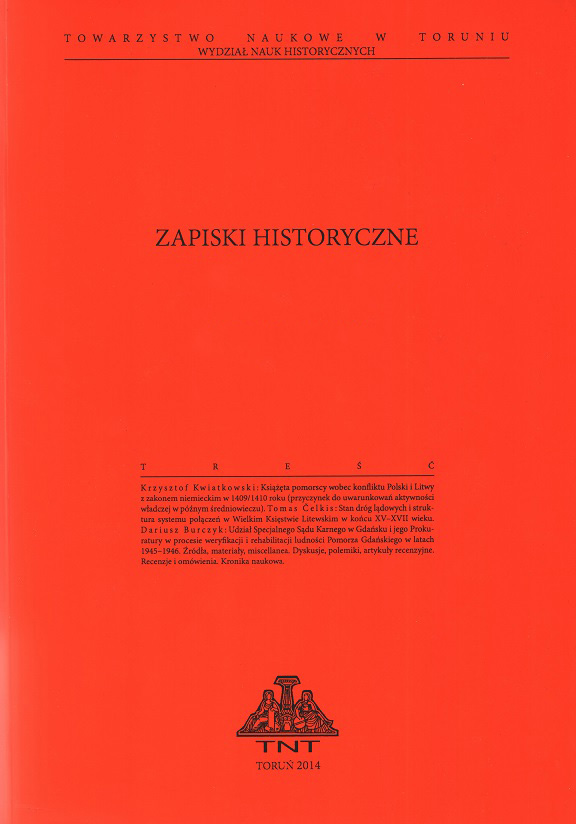Identitätsmodelle in der preußischen Landeshistoriographie 1466–1525
Identification Models in the Prussian Historiography of 1466-1525 (German)
Author(s): Arno Mentzel-ReutersSubject(s): Cultural history, History of ideas, Political history, 15th Century, 16th Century
Published by: Towarzystwo Naukowe w Toruniu
Keywords: Royal Prussia;the Duchy of Prussia;Prussian chroniclers;narrative sources;the Teutonic Order;Prussian towns;
Summary/Abstract: Until the beginning of the 18th century in Royal Prussia and the Duchy of Prussia there existed a shared consciousness of belonging to one country. This feeling is also present in the regional historical works. The common country “Preußenland” was founded on the territory of the former Teutonic state. Political changes taking place after the Thirteen Years’ War were not taken into account in this narration. Functioning as part of the Kingdom of Poland guaranteed certain regional freedoms. The characteristic feature of the Prussian historiography was the description of pagan times in a negative way comparing them with the Christian times. The rebellion of the Prussian towns was depicted as the result of the arrogance of the Teutonic Order starting from the times of the rule of Konrad von Wallenrode. The outbreak and development of the Reformation hindered the process of the creation of the rival regional identities. Historiographers did not use the sources to create one general narration, but they entwined various, sometimes contradictory, narratives in their works.
Journal: Zapiski Historyczne
- Issue Year: 82/2017
- Issue No: 1
- Page Range: 5-20
- Page Count: 16
- Language: German

